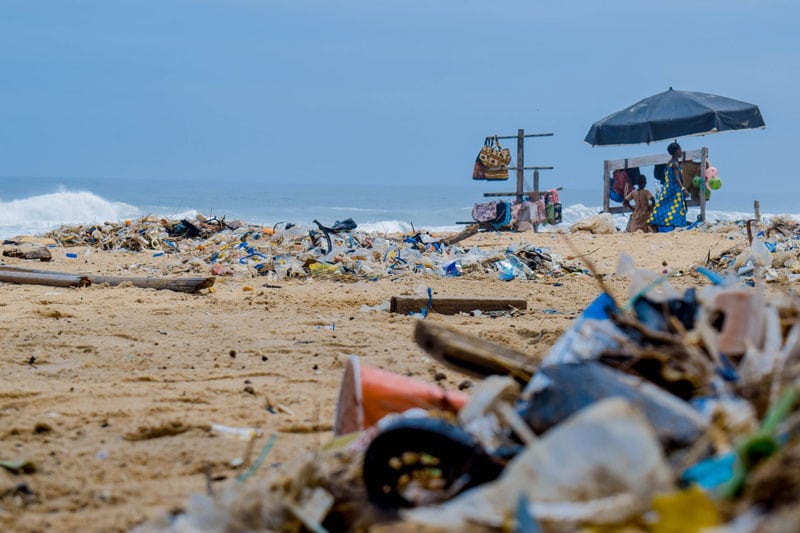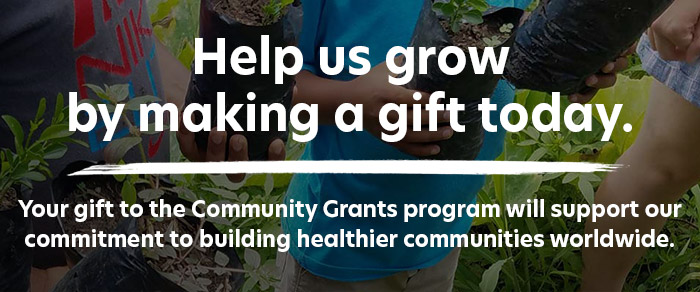

History was made in 2019 when 17-year-old Swedish activist Greta Thunberg was nominated for a Nobel Peace Prize for her efforts combating climate change. She subsequently won TIME’s 2019 Person of the Year for her environmental activism. Greta is known for being a headstrong environmentalist, but what many people don’t know is that she is vegan, choosing every day to eat plant-based—and she thinks the world should, too, in large part for the betterment of the environment. Greta serves as an inspiration and example of how to be a better human for the environment, and for ourselves. She encourages adults—and also people of her own age—to make changes now and help set the stage for future generations.
Avoiding meat and dairy is the “single biggest way” to reduce your impact on the environment.
While many factors play into creating a healthier environment, Greta’s stalwart environmental resiliency reminds us that there is a mini Greta inside us all. Here are five actions we can take today to do our part in creating a more sustainable and environmentally healthy society.
- Eat Plant-Based
Climate change is grossly impacted by animal agriculture. Ninety-nine percent of agricultural animals are factory raised through intensive farming practices. Factory farming is extremely destructive and harmful to the animals and farm workers, but also to our planet. According to scientists, “Without meat and dairy consumption, global farmland use could be reduced by more than 75%—an area equivalent to the US, China, European Union, and Australia combined—and still feed the world,” The Guardian explains. Avoiding meat and dairy is the “single biggest way” to reduce your impact on the environment. By not supporting the factory farming industry, we could limit factory-farm-induced climate destruction. Choosing plant-based foods over animal products means choosing to support a better-for-the environment food supply. - Save Money & Make Your Next Car Purchase an Electric Vehicle
Fossil fuels, which are what gas-powered vehicles run on, are a major source of pollution and contribute to carbon emissions. By shifting to an electric vehicle, you reduce your carbon footprint and contribute to a cleaner environment. There are also financial benefits when going electric, including saving on gas costs and maintenance. In addition, there is currently a $7,500 federal tax credit available when you purchase an all-electric vehicle, as well as a smaller credit when purchasing a hybrid and other types of electric cars. - Adopt a Minimalist State of Mind
You don’t have to be a true minimalist to have a minimalist state of mind. One of the main ideas of minimalism is to consume less and, thus, produce less waste. Since consumerism is a huge contributor to climate change, responsible for nearly 60% of global greenhouse gas emissions, there are certainly ways to change your consumer habits.- Buy second hand: Nowadays, there are plenty of secondhand and vintage shops that sell not only clothing but also furniture and household items. You might be surprised by what beautiful vintage and stylish secondhand items are out there. Now more than ever, you can also find lots of vintage shops online and also selling through social media.
- Shop local: Buying locally as much as possible, whether it’s food from a farmers market or clothing or accessories from a local vendor, means that you are supporting goods that were made (or grown) locally, avoiding the environmental costs associated with transport and shipping.
- Help Keep Our Oceans Clean, and Reduce Plastic Use
One look at the Great Pacific garbage patch, also known as the Pacific trash vortex, and you’ll be reminded of the extreme oceanic degradation occurring. Ocean pollution, much of which comes in the form of plastics, threatens marine life and biodiversity. It pollutes this important body of water that covers 70% of the planet and absorbs 50 times more carbon dioxide than our atmosphere and produces half of the world’s oxygen. While we gravely need ambitious commitments from government and industry alike to reduce plastic pollution, there are steps—even if they are baby steps—you can take to do your part. Some ways to help include the following:
- Participate in beach cleanups: There are plenty of nonprofits, alumni organizations, and meetup groups that plan regular cleanups. Do good, feel good, and maybe even meet some new friends in the process!
- Reduce single-use plastics: Since single-use plastics constitute about 40% of all plastic waste, carrying and using a reusable straw and fork, reusable bags, produce bags, food containers, and reusable water bottles are especially important and are all easy enough things to do.
- Use dishcloths instead of sponges: Most sponges are made of plastic. Switching to a dishcloth gets the cleaning job done and can be thrown in the wash and reused.
- Use a bar soap (rather than soap from containers, often made of plastic); and try other plastic-free self-care goods—there is nearly everything you can imagine, like toothbrushes, floss, razors, and more, that are all eco-friendly.
- Support Companies That Are Eco-Minded
Both individuals and businesses need to do their part for the environment. Businesses can have an enormous impact, at scale, since they make the goods we buy; they can also direct large sums of money to organizations doing good for the planet. Use your purchasing power and buy from companies that lead with their focus on the environment. Whether that’s organizations that promise zero-waste packaging or companies with a social good aspect, such as those that donate to environmental causes. For example, you can look for brands that participate in One Percent for the Planet—often you will see the badge on packaging and websites—since those companies donate 1% of gross sales to environmental nonprofits. One Percent for the Planet’s idea is simple and explains why corporate responsibility is critical: Because companies profit from the resources they take from the earth, they should protect those resources. So whether companies participate in this program or are doing other environmental-dogooder activities, make sure to spend your hard-earned money on brands that align with your environmental values.



Copyright 2026 Center for Nutrition Studies. All rights reserved.
Deepen Your Knowledge With Our
Plant-Based Nutrition
Certificate
Plant-Based Nutrition Certificate
- 23,000+ students
- 100% online, learn at your own pace
- No prerequisites
- Continuing education credits






